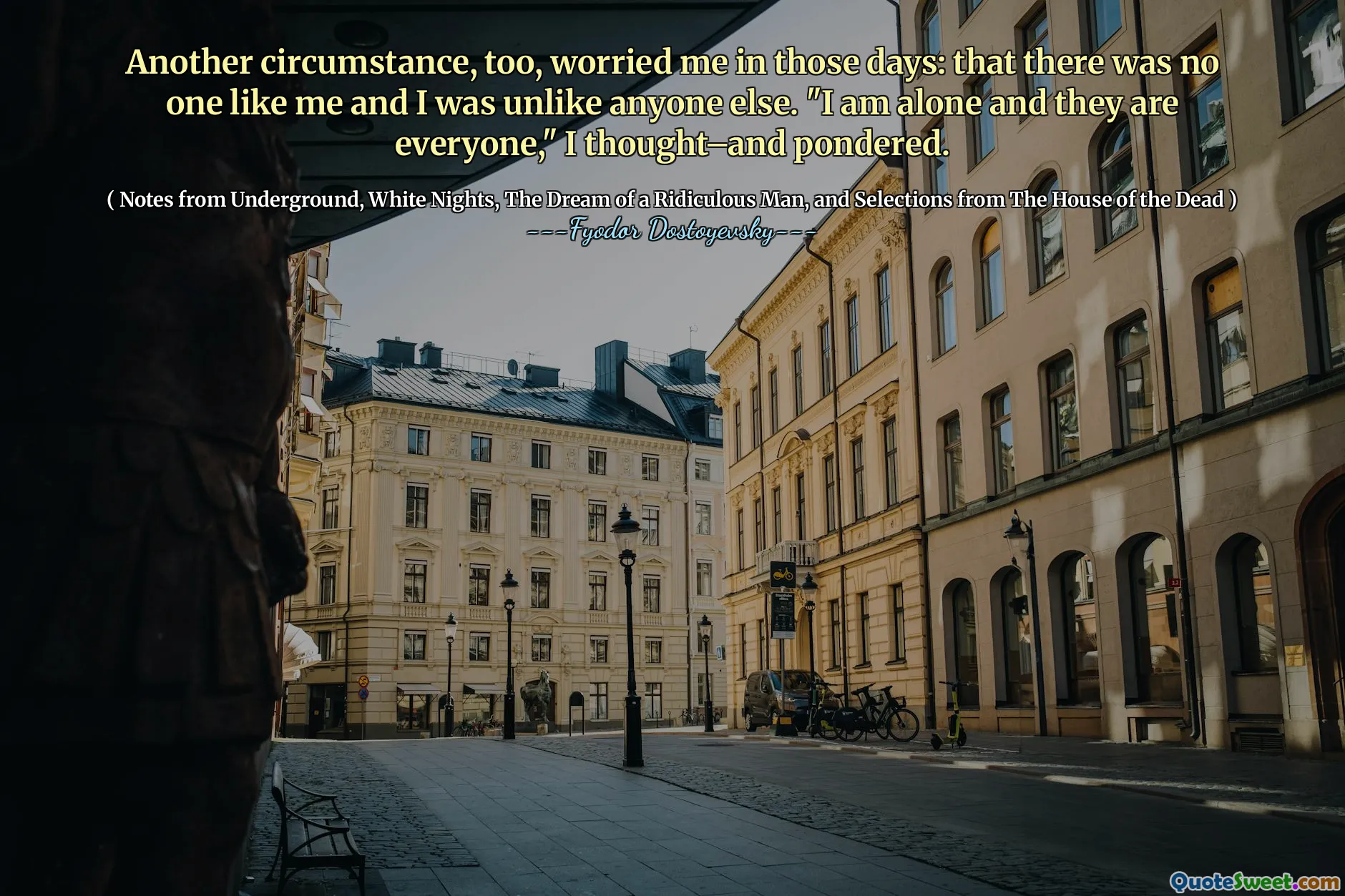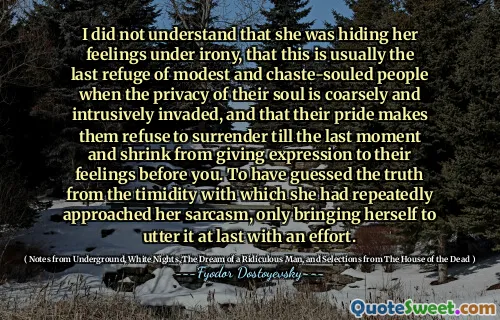
Another circumstance, too, worried me in those days: that there was no one like me and I was unlike anyone else. "I am alone and they are everyone," I thought–and pondered.
This quote beautifully encapsulates the profound sense of isolation that many individuals wrestle with in their lives. It reflects an internal struggle with uniqueness and alienation—how someone can feel fundamentally different and disconnected from the collective experiences of others. Dostoyevsky's words capture the paradox of human existence: the simultaneous desire for connection and the awareness of one's singular identity that sets one apart. The speaker's reflection, "I am alone and they are everyone," highlights the deep existential loneliness that often emerges when one perceives themselves as a solitary entity surrounded by a seemingly homogeneous crowd.
What resonates profoundly with me is the raw vulnerability embedded in this statement. It speaks to a universal psychological experience—the feeling of being misunderstood or unseen despite being surrounded by people. In many ways, this sense of being unlike anyone else can be both a curse and a gift. It alienates, yet it also holds the potential for unique self-expression and insight. The struggle Dostoyevsky paints here moves beyond mere social isolation; it probes the essential human question of identity and belonging.
The idea of pondering one's solitude invites introspection about how individuals negotiate their place in society and their inner world. It challenges us to consider how our distinctiveness shapes our experiences and relationships. In essence, the quote is a profound meditation on the human condition—our inherent solitude and the complex dynamics between the self and the collective. It encourages embracing the discomfort of aloneness to understand oneself more deeply, ultimately seeking a reconciled existence where one's uniqueness is acknowledged but not a barrier to connection.







